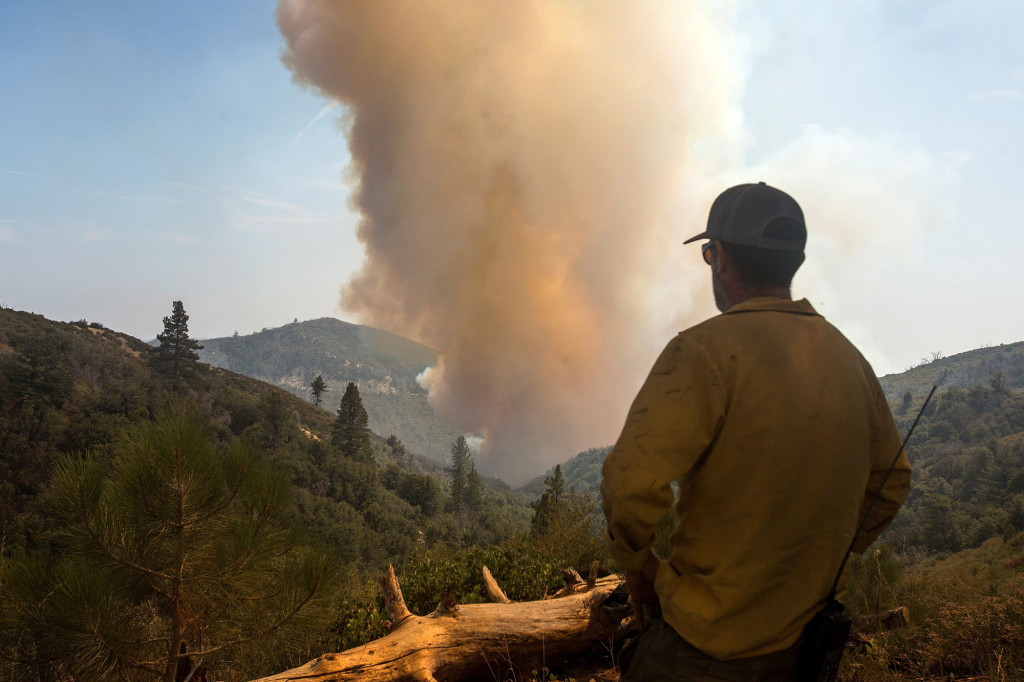Smoke from the wildfires that are scorching the West Coast could increase the risk of dying from the coronavirus, disturbing new research suggests.
Wildfires smoke contains a mixture of many pollutants — including tiny particles that are also belched out of cars and power plants, KGTV reported.
Harvard researchers concluded in April that even “a small increase in long-term exposure” to that kind of pollution led to an 8 percent increase in the COVID-19 death rate.
“It’s a threat amplifier,” Dr. Abisola Olulade of the San Diego-based Sharp Rees-Stealy Medical Group told the station.
Once inhaled, smoke particles can travel inside the lungs and eventually enter the bloodstream, potentially leading to blood clots and more inflammation in COVID-19 patients, Olulade added.
“People that are already fighting off a COVID-19 infection already have compromised heart and lung function if they have severe illness,” the doctor told KGTV. “So that can increase their susceptibility to the effects of wildfires.”
Wildfire smoke wears down the protective lining of a healthy person’s airways, and stimulates certain pulmonary receptors that just so happen to be the one’s that the coronavirus uses to enter cells, experts told the outlet.
“If you have more of them, it can increase the viral load,” Olulade told the station.
Non-peer reviewed COVID-19 research suggests that wildfire smoke can enable the virus to travel longer distances and even live longer, by hitching a ride on the particulate matter in the haze.
“It’s conceivable with more particles in the air, then yes the virus can latch onto those particles a bit more,” Dr. Christian Ramers of Family Health Centers of San Diego told the station.





















